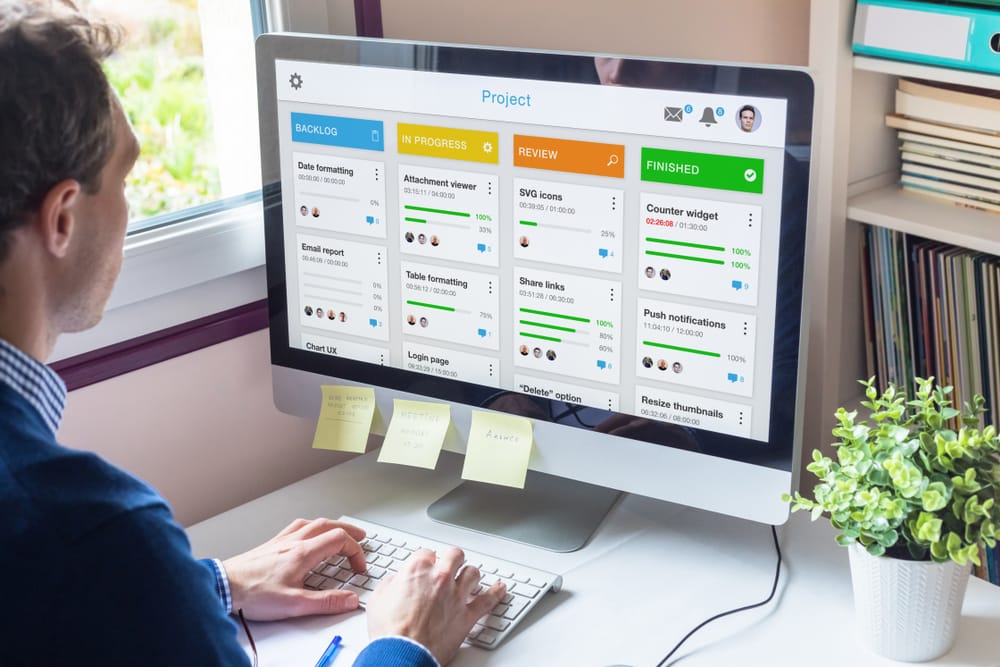Product Managers are responsible for developing products and services that meet the needs of the customer efficiently. They identify and analyze the performance of the product in the market, and they drive the company towards the success or failure of a product. Product managers increase the revenue and the profitability of the organization. Product managers work closely with the market and create a long-term strategy for the product to capture and own the market. Through this blog, we’ll learn about the product manager job description, what product management is, what does a product manager do, how to become a product manager and more.
To understand product managers, let us first look at product management.
- What is Product Management?
- Product Manager Job Description
- Types of Product Manager Roles
- Functions of a Product Manager in the company
- How does a Product Manager do it?
- Skills of a Product Manager
- Journey of a Product Manager
- How to become a Product Manager
What is Product Management?
When building a product, the product must be important to the business and customers. It must drive towards the growth of the business. Product management is identifying and analyzing the benefits the product will bring to its customers – both internal and external. Product management involves planning, forecasting, and marketing the product to the right customers at the right time and is involved in every stage of the product life cycle.

Product Manager Job Description
A product manager works on planning and execution of a product lifecycle that includes gathering and prioritizing product and customer requirements, working closing with sales, marketing and engineering requirements, defining the product vision, and ensuring that the customer satisfaction and revenue goals are met. A product manager also works on ensuring that the company’s overall strategy and goals are met.
Product Manager Roles and Responsibilites:
- Define the vision of the product and create a road map to reach that vision in a step by step manner and also stay updated with the progress at each stage in the road map
- Create a strategy for the development and launching of the product, for its production to be cost-effective and also generate profits and reach the right customer when they need it.
- Gather the market requirements, because any product that is created needs to be aligned with the needs of the customer and the market scenario. Identify the requirement of the product in the market and create it when it’s demanded the most.
- Work closely with all the departments of the organization – sales, marketing, operations, engineering, stakeholder, and the most important, the customers.
- Regularly review the progress in the making of the product and answer the queries being raised.
The role of a product manager is an interesting and integral part of the organization. It’s researching, reviewing, and communicating to provide what the customer needs. It is the product manager that decides the profitability of the business due to the launching of new products. You get to wear many hats when it comes to being a product manager.
Now that you know the product manager job description, you might be wondering where product managers are required?
There are various industries and companies today that are demanding product managers. Here is a look at a few of them. These companies look for product managers that can create strategies and roadmaps for developing products that never fail. Amazon, PayTM, Myntra, Microsoft and Uber are top-hiring companies for product managers. They hire product managers to develop strategies that increase customer satisfaction and ROI.
Types of Product Manager Roles
For all product managers to fit in one basket is quite not possible. Product management is a vast field and requires specialized product managers because a single product manager can’t do it all!
1. The Tech Product Manager
Loves working with technical products and is great at using technology to its best. You do not have to look into how to build the product because the engineers will do that, but your job is to define why the particular product is being built and what the particular product is. Since you are already equipped with technical knowledge, it will become easier for you to work with engineers.
2. The Designer Product Manager
You are responsible for how the product should look. We all know that the design and aesthetics of the product matter, and these are responsible for attracting customers. As a design product manager, you will develop an understanding of the needs of the users of the product and identify flaws that can reduce the functionality of the product.
3. The Business Product Manager
A thinker, to understand what the future of the product looks like. The role of a business product manager is to paint the bigger picture of the product by looking into marketing, finance, and operations. Your business acumen helps you communicate easily with teams, stakeholders and customers.
5. The Data Product Manager
With your analytical skills, you are responsible for forecasting the product market and predicting sales. When making a decision, data-driven decisions are trusted the most. The data product managers are great at finding patterns and reading between the lines. You also gain an understanding of sales and help forecast the demand.
6. The growth Product Manager
You will be responsible for identifying any problems in the product or during the development of the product that hinders its growth. A growth product manager can bridge the gap between supply and demand and solve problems that are faced in this area. Working with data and different metrics to solve problems in the product is their expertise.

Functions of a Product Manager in the company
- Product Managers are the central point of communication – They receive a holistic point of view as they are in contact with every department in the company
- Part of the entire journey of the product – They are not just responsible for the benefits and features of the product but also a part of the journey the product goes through. They look at the features and the styles of the product, the packaging that should be adopted, and the finance, customer care, and warranties.
- Product Strategy – Every process requires a strategy and product managers are responsible for defining the product strategy. They are responsible for positioning the product in the market and also the developments in the product for future positioning. They also work on creating a strategy that leads to the product being sold in the market
- Guidance – Product managers provide guidance to all the departments involved in the making of a product. The requirements of the product are translated into the requirements of the engineering department. They guide the marketing and sales of the product by promotion of the product.
How Does a Product Manager Do it?
- Research – Before building a product, it is necessary to understand what the end-user is looking for and does the market demand this product. A product manager conducts research and analyses the demand of the product and also the fit of the product in the current market scenario.
- Defines the roadmap of the product – The product road map consists of the direction to follow when creating the product keeping in mind the stakeholders, the sales and marketing teams, the product creating teams, and the customers. Defining the roadmap tells how the product will be created, the various features the product will hold and when should it be completed. As it breaks the creation of the product into incremental steps, solving challenges becomes easier.
- Testing of the product – Testing of the product before its launch in the market is very important and the product manager is responsible for it. They set up experiments to identify any problems that hinder the smooth use of the product.
Also Read: 5 Qualities of a Product Manager
Skills of the product manager
1. Business Expertise
The product needs to generate profits. The basic business knowledge helps in building a budget and developing a product strategy that helps in making the product effectively. With financial skills, business knowledge gives you the ability to deal with stakeholders by providing them the right numbers.
2. Communication skills
Communication skills are very important for a product manager, as a product manager needs to convince the stakeholders, the design team, the clients, and the customers. To get the right product, there is a need to continuously communicate with the design and engineering team to make sure that the product is not facing any problems. Communication skills help product managers interact with customers and the team to answer the queries and also find solutions.
3. Research Skills and Analytical skills
The creation of any product is extensively based on the research work, which is to be done by product managers. The research and analytical skills help in identifying the product that is in demand by the customers and also identifies the products of competitors for modification of the product for forecasting future demand. They can also identify the problems that the customers are facing with the product that is in the market and build strategies to resolve those problems.
Other skills a product manager must have are marketing skills, expertise in domains, interpersonal skills, and strategic thinking.
Journey of a Product Manager
- Associate Product Manager – an entry-level position involving analysis of data, competitive research, and identifying the requirements and features of products.
- Product owner – You will be responsible for answering questions related to the development of the product and creating user based case studies for in-depth study
You can take up senior roles based on your experiences and become director of product management, vice president of product management, and even the chief product officer.
A product manager needs to accomplish tasks quickly and make the right decisions faster. A product manager job description includes the use of certain tools.
- Product lifecycle – to understand the stage the product will actually launch in and the time it will stay in the market before it reaches the mature phase
- Ansoff’s Growth matrix – the quadrant you belong to that is a combination of products and customers (new and old)
- Porter’s generic strategies – the study of the existing market and future market and understanding the market you are catering to, to build a competitive advantage.
- SWOT analysis – understanding the strengths and weaknesses of the product that exists and identifying the opportunities.
A product manager needs to build an understanding of finance, marketing, and technical concepts to identify the pricing, the positioning, the expenses, and the profit.
How to become a Product Manager
There is no fixed method to becoming a Product Manager. Product Managers come from a variety of backgrounds including marketing, communications, engineering. Having the skills required to become a product manager will help you land the job that you are looking for. Customer research, identifying market opportunities, product modeling and road mapping are a few of the required skills apart from leadership, communication and collaboration skills, empathy, and strategic thinking.
In your journey to become a product manager, identify the type of product manager you can become based on the skills you already have and then gain other skills by understanding the working of technology, understanding of business processes, UI/UX design, user research, empathy, and data analytics. You can also enroll in the PG Program in Product Management and Analytics offered by Great Learning. Build a rewarding career with this 6-month Online Mentorship Program.








